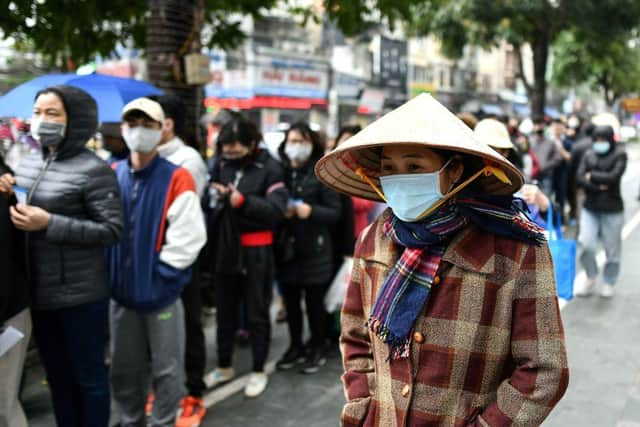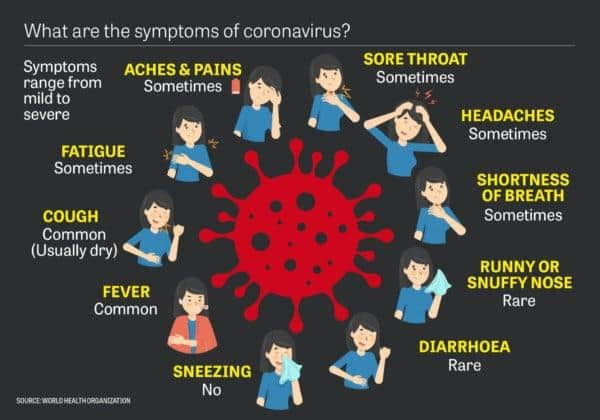When can I travel to Vietnam? Latest FCO guidance as UK extends lockdown
This article contains affiliate links. We may earn a small commission on items purchased through this article, but that does not affect our editorial judgement.
However, some parts of the world, including Wuhan, Italy and Spain have now started to ease some of their restrictions, raising the question as to when travel will be allowed again.
When can I travel to Vietnam?
On 17 March, the Foreign and Commonwealth Office (FCO) advised against all but non-essential travel for a period of 30 days.
Advertisement
Hide AdAdvertisement
Hide Ad

This advice was later updated to warn Britons against all travel abroad indefinitely, due to unprecedented international border closures and restrictions. This advice from the FCO still remains in place.
However, a number of countries have started easing their restrictions, and flights are slowly becoming operational again in some areas.
What restrictions are in place in Vietnam?
In Vietnam, tourists are still temporarily banned from entering the country and anyone who is suspected of coming into contact with the virus will face compulsory quarantine and self-isolation.


The Vietnamese authorities have announced an extension of the partial lockdown until 22 April in Hanoi, Ho Chi Minh City, Danang, Lao Cai, Quang Ninh, Bac Ninh, Ninh Binh, Quang Nam, Binh Thuan, Khanh Hoa, Ha Tinh and Tay Ninh.
The lockdown means that:
- people are being advised to stay at home, leaving only to buy food and medicine
- if you leave your accommodation, always wear a mask, practice social distancing and do not congregate with more than one person, with some exceptions (e.g. hospitals)
- public transport and taxi services are being widely suspended; internal flights greatly reduced
- essential services remain open
Provinces that are not included in the lockdown will continue protective measures, including staying at home for all but essential tasks, wearing masks in public, social distancing and no large public gatherings.
Advertisement
Hide AdAdvertisement
Hide AdMovement between, and within, cities across the country is not encouraged, and should be avoided, the FCO has warned.
Checkpoints are also in place in some Vietnamese cities where people are asked about their recent travel history, and are required to have their temperatures checked.
Passengers arriving into domestic terminals in some Vietnamese airports are now required to undergo a short 10 minute coronavirus test.
On 5 April, the Vietnamese provinces of Hai Phong, Danang and Quang Nam announced that anyone arriving from either Hanoi or HCMC or any other Vietnamese province with confirmed coronavirus cases, will be quarantined.
The provinces of Thai Binh and Quang Ninh will also refuse entry to people unless they are travelling for essential reasons.
Anyone who shows signs of respiratory illness on arrival in Vietnam can expect to be checked. Those who are confirmed as having coronavirus, including foreigners, can expect to be quarantined.
Further advice is available from Public Health England and on the TravelHealthPro website.
What is coronavirus?
The virus originated in Wuhan City, Hubei Province, but cases have now been confirmed in other parts of China and numerous countries around the globe, including Vietnam.
Advertisement
Hide AdAdvertisement
Hide AdCoronaviruses are a large family of viruses, and the Centers for Disease Control and Prevention (CDC) explains that they usually cause “mild to moderate upper-respiratory tract illnesses, like the common cold. Most people get infected with these viruses at some point in their lives. These illnesses usually only last for a short amount of time.”
The NHS notes that the symptoms of coronavirus are:
- a cough
- a high temperature
- shortness of breath
They add that, "these symptoms do not necessarily mean you have the illness. The symptoms are similar to other illnesses that are much more common, such as cold and flu."
However, human coronaviruses can sometimes cause lower-respiratory tract illnesses, such as pneumonia, bronchitis or more severe diseases such as severe acute respiratory syndrome (SARS).
Advice for travellers
Stay indoors and avoid contact with other people if you’ve travelled to the UK from the following places, even if you do not have symptoms:
anywhere in Italy on or after 9 March
specific areas in northern Italy in the last 14 days
Iran in the last 14 days
Hubei province in China in the last 14 days
Daegu, Cheongdo or Gyeongsan in South Korea in the last 14 days
Stay indoors and avoid contact with other people if you’ve travelled to the UK from the following places in the last 14 days and have a cough, high temperature or shortness of breath, even if your symptoms are mild:
Italy (outside specific areas in northern Italy) before 9 March
mainland China outside of Hubei province
South Korea outside of Daegu, Cheongdo and Gyeongsan
Cambodia
Hong Kong
Japan
Laos
Macau
Malaysia
Myanmar
Singapore
Taiwan
Thailand
Vietnam
Use the 111 online coronavirus service to find out what to do next. Do not go to a GP surgery, pharmacy or hospital.
Advertisement
Hide AdAdvertisement
Hide AdIn Scotland call your GP or NHS 24 on 111 out of hours. In Wales call 111 (if available in your area) or 0845 46 47.
See COVID-19: specified countries and areas for more information and maps of specific areas.
As well as the travel restrictions and quarantine requirements, the Vietnamese government has recommended that citizens wear masks in public, and has introduced special permits for anyone seeking to organise large public events.
If you’re returning to the UK from Vietnam, consult the latest advice from the Department of Health and Social Care on actions to take.
Further advice is available from Public Health England and on the TravelHealthPro website.
#HealthHeroes
Show your support for the incredible work being done by those working on the frontline of the coronavirus crisis. Join our Facebook group and follow the dedicated Instagram page to read stories of everyday heroism and share your own messages.
A message from the Editor
Thank you for reading this story on our website. While I have your attention, I also have an important request to make of you.
In order for us to continue to provide high quality and trusted local news on this website, I am asking you to also please purchase a copy of our newspaper.
Advertisement
Hide AdAdvertisement
Hide AdOur journalists are highly trained and our content is independently regulated by IPSO to some of the most rigorous standards in the world. But being your eyes and ears comes at a price. So we need your support more than ever to buy our newspapers during this crisis.
With the coronavirus lockdown having a major impact on many of our local valued advertisers - and consequently the advertising that we receive - we are more reliant than ever on you helping us to provide you with news and information by buying a copy of our newspaper.
Thank you, and stay safe.